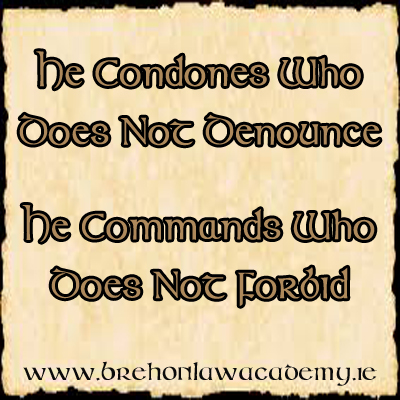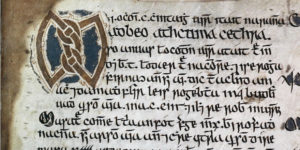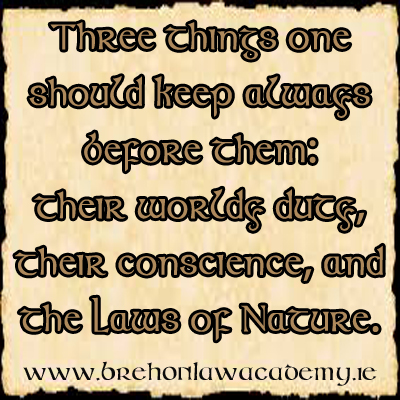This Maxim reflects a common theme found throughout the BrehonLaws of Early Ireland; personal social responsibility.
Social responsibility was both morally expected and in many ways legally ordained.
While this Maxim, in particular, could be directed at the upper classes of society, i.e. those who had the power to denounce or command, it can also easily relate to the hierarchy of authority found within the family unit, not just the public social structure, and so the wisdom rings true whatever the case.
He Condones Who Does Not Denounce,
He Commands Who Does Not Forbid.
Every individual is personally responsible to prevent wrong doings and this maxim warns against acquiescence, going so far as to allow for the imposing of culpable liability on those who do nothing to prevent an injustice that is within their power to prevent.
In another sense, this Maxim tells us that a King who permits his men to plunder is no more than a plunderer himself. It suggests that mere knowledge of wrongdoing is enough to create the inner moral obligation to respond in just manner. A concept mirrored in the mythological accounts of Na Fíanna and the Red Branch Knights who were duty-bound by their ancient warrior-code to swiftly quell injustice wherever they should meet it.


